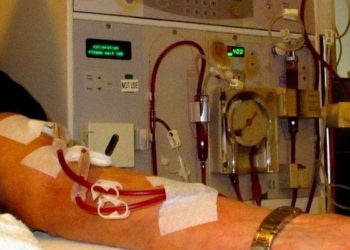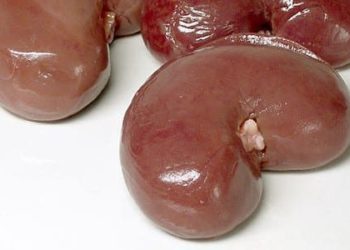Effects of intradialytic exercise for advanced-age patients undergoing hemodialysis
1. Patients over 70 years old with Chronic kidney disease (CKD) had higher Short Physical Performance Battery (SPPB) scores after 6 months of intradialytic exercise therapy, compared to patients without exercise therapy.
Evidence Rating Level: 1 (Excellent)
As chronic kidney disease (CKD) progresses in a patient, physical function also declines, which in turn is associated with adverse events and mortality. Therefore, exercise therapy has been proposed as a potential intervention to improve physical function in patients going through dialysis. However, most studies have centred on a young to middle age population, with studies on the elderly being limited, despite facing unique barriers compared to younger age groups, such as cognitive slowing and physical disability. The current randomized controlled trial aimed to compare physical function decline in CKD hemodialysis patients of advanced age, with one group undergoing intradialytic exercise therapy, and the other group undergoing care as usual. There were 40 patients in the control group and 44 patients in the intervention. All were over 70 years old, and the intervention group underwent 6 months of supervised, individualized exercise therapy three times weekly, with each session conducted during the first 2 hours of hemodialysis. These sessions involved lower extremity exercises such as stretching, ergometer cycling, and resistance training. Three outcomes were measured: Lower extremity muscle strength (LES) which assess knee extensor strength, the Short Physical Performance Battery (SPPB) score which assesses balance, gait speed, and lower limb force (each with a score from 0 to 4 points), and the 10 metre walking speed. The study found no baseline differences between the groups, and no adverse events resulting from intradialytic exercise. There were no significant differences between groups for the LES (adjusted mean difference of 0.94, 95% CI -1.22-3.09, p = 0.64) and the 10 metre walking speed (adjusted mean difference of -0.02, 95% CI -0.15-0.12, p = 0.54). However, the intervention group had a higher SPPB score (adjusted mean difference 1.05, 95% CI 0.15-1.95, p = 0.01). Overall, this study demonstrated an improvement in physical function rom intradialytic exercise in advanced age CKD patients, specifically in the areas of balance, gait speed, and lower limb force.
Click to read the study in PLOSONE
Image: PD
©2021 2 Minute Medicine, Inc. All rights reserved. No works may be reproduced without expressed written consent from 2 Minute Medicine, Inc. Inquire about licensing here. No article should be construed as medical advice and is not intended as such by the authors or by 2 Minute Medicine, Inc.









